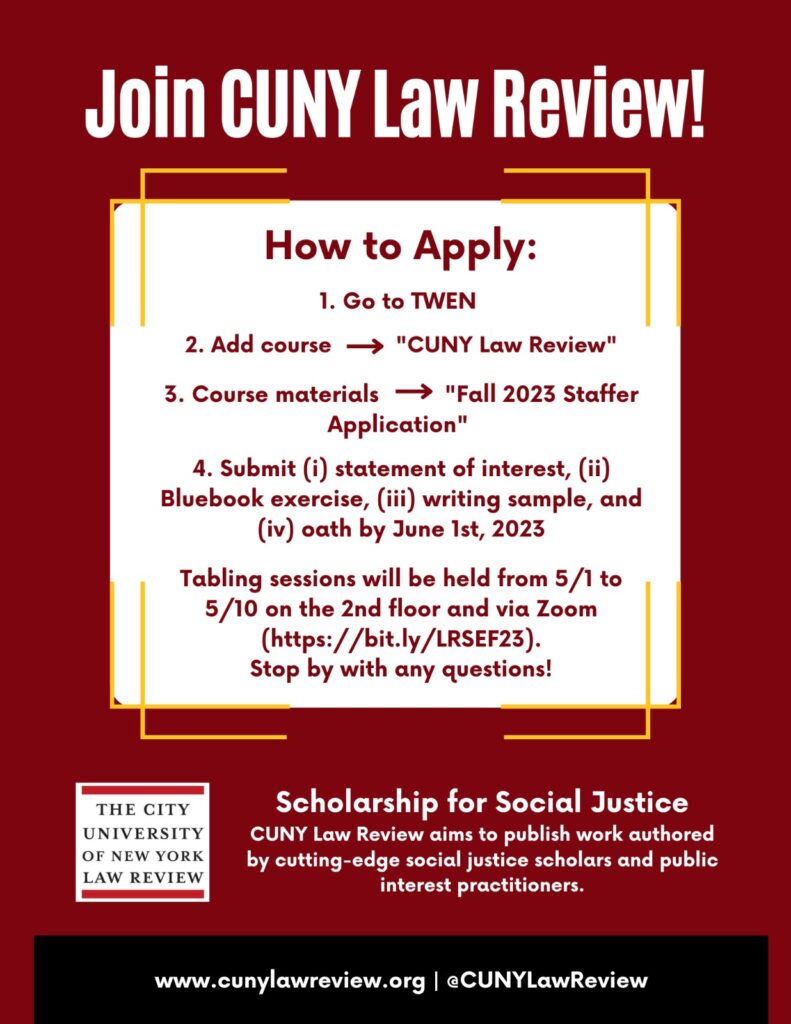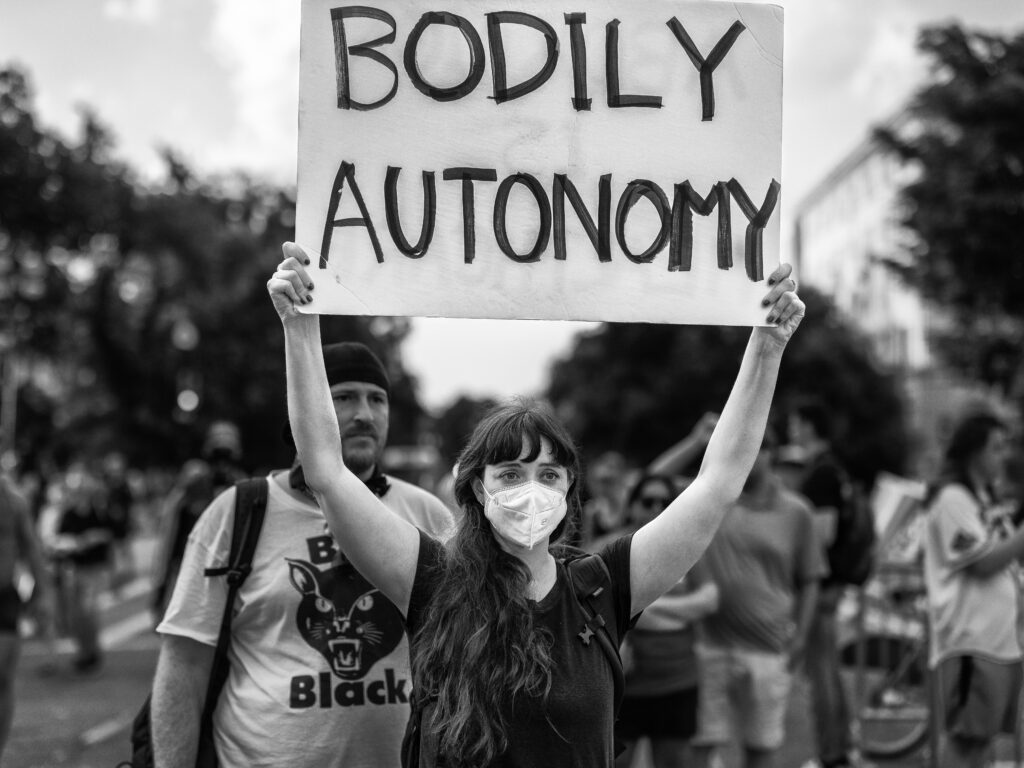
Fellow CUNY Law students,
We encourage you to pause from studying for finals to scream into the wind and learn more about joining us this fall as staff editors working together on social justice scholarship.
You can stop by our tabling sessions on the second floor of the law school from May 1 through May 10 or join us on Zoom by clicking https://bit.ly/LRSEF23. Staffing permitting, we will be at the tabling sessions and on Zoom from 12:30-1:30 pm and 5:45-6:45 pm.
Applications are due by June 1. We look forward to chatting!

